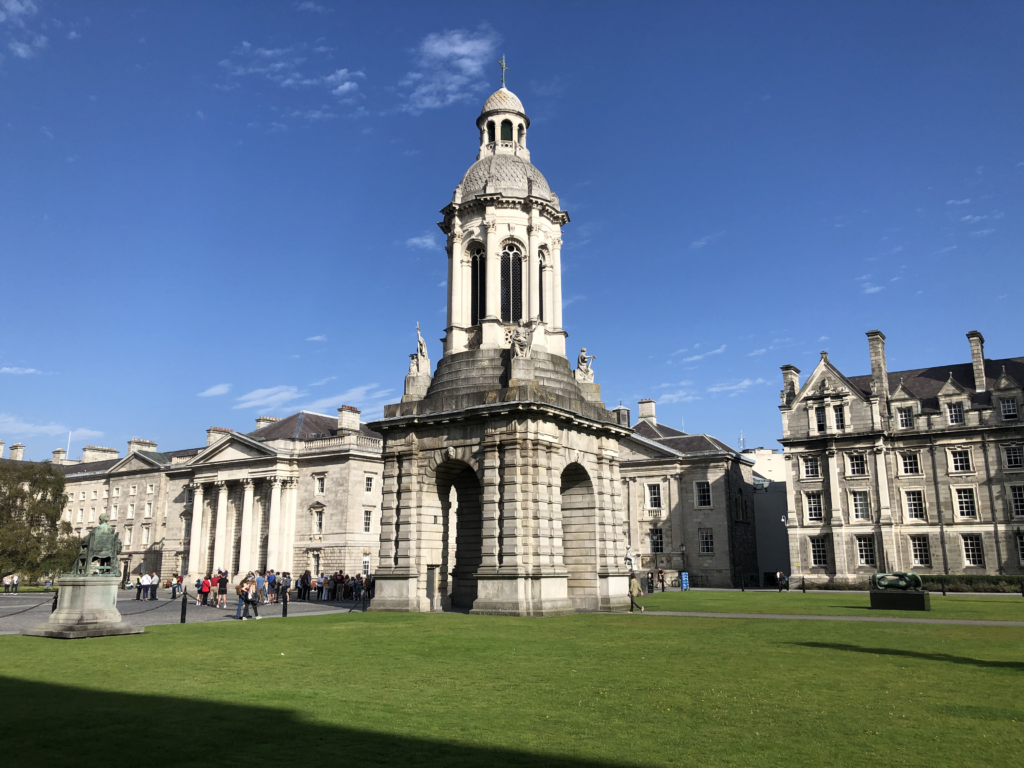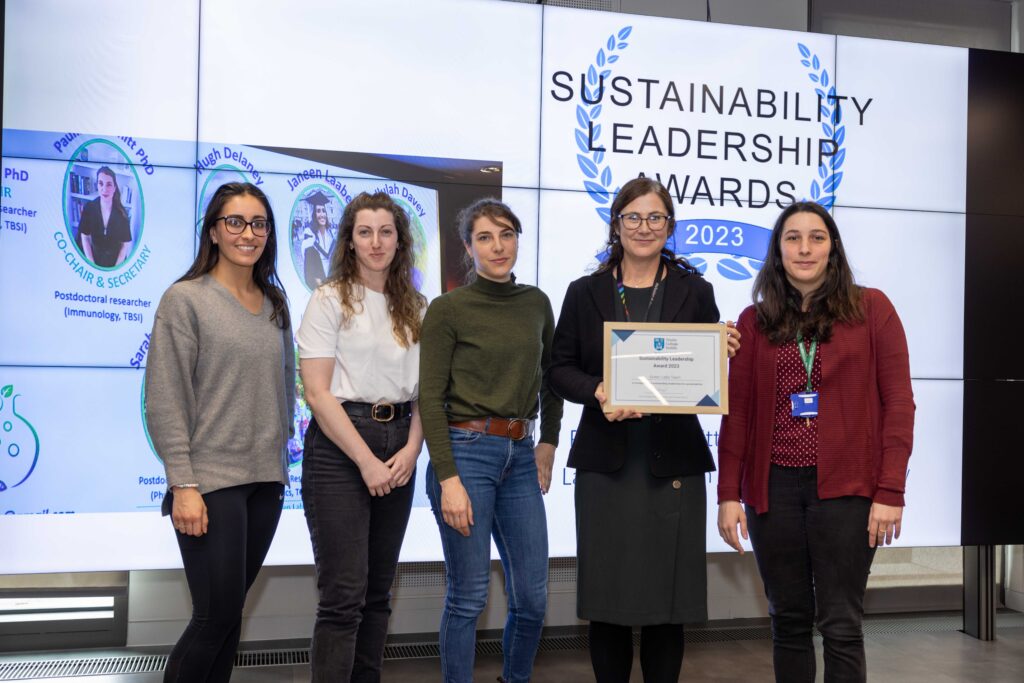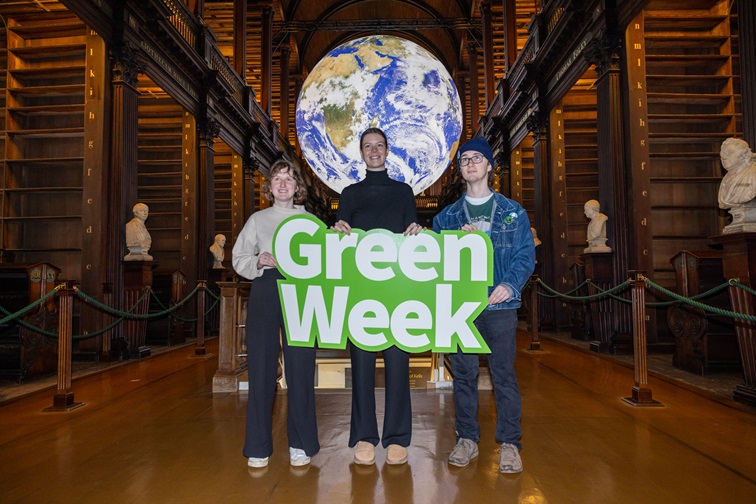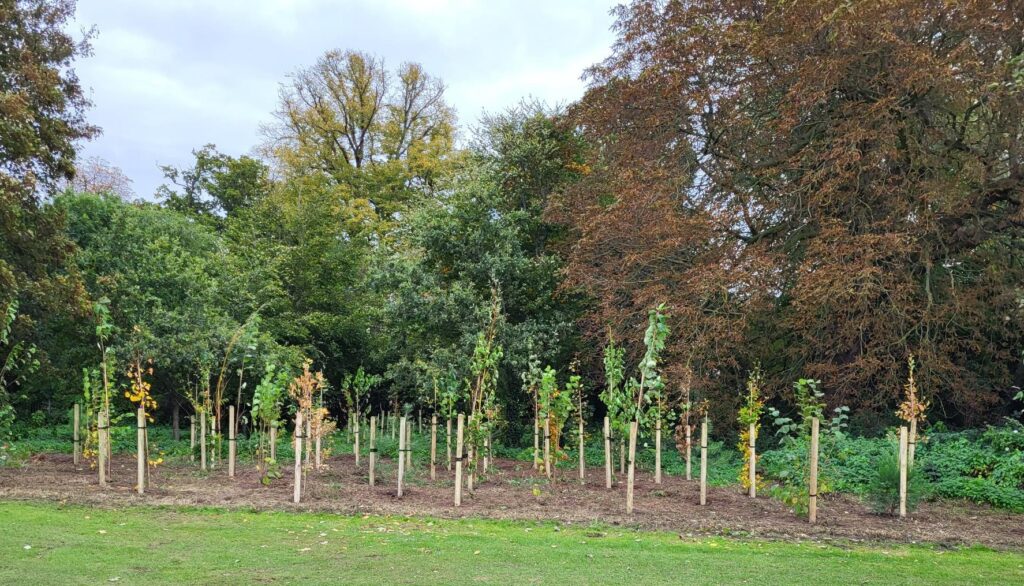Climate Education
Trinity Finds Opportunity In Climate Literacy
September 13, 2024

Trinity College Dublin, Ireland
It’s not often that you feel the stars aligning, but with climate literacy, it genuinely feels like a subject that is finally receiving the attention it deserves.
On September 5, EARTHDAY.ORG announced its theme for 2025, Our Power, Our Planet, championing renewable energy and calling for a tripling of clean energy generation by 2030.
In the same week that the World Bank Group released its data-driven report, Choosing Our Future: Education for Climate Action, it highlighted how the transition to clean energy is being hindered by a shortage of skilled workers. The report underscores that the global green transition requires millions of climate-literate workers—a challenge that EARTHDAY.ORG (EDO) has been emphasizing for years. Both organizations agree that universal climate literacy and education are crucial to addressing this skills gap.
Which is why it is gratifying to see Trinity College Dublin (TCD), one of the world’s major learning institutions, recognizing this need and rising to the challenge by recently announcing that “all students and teaching staff will be empowered to develop the knowledge, skills and attitudes necessary to act as agents of change”.
Trinity is head of the curve on this issue. In the past two years alone, they have provided Climate Leadership Training to over 340 academics and researchers and appointed ESD Fellows—a group tasked with developing a mandatory sustainability module. This initiative aligns with strategies adopted by leading U.S. universities such as Stanford, Berkeley, Columbia and Arizona State University, marking a significant shift among major institutions toward integrating sustainability into their curricula.

Sustainable Leadership Awards – 2023

Green Week 2024 Pic Paul Sharp/SHARPPIX
Education is a fundamental pillar of Trinity’s Sustainability Strategy and is central to our efforts to support climate education at EARTHDAY.ORG and within the Climate Education Coalition. It is very much a strategy aimed at universities and policy makers to promote practices that equip citizens with green skills.
TCD Vice-President for Biodiversity and Climate Action Prof. Jane Stout believes that it is the responsibility of universities to educate students, staff, the general public, and business to promote innovation that inspires us all to take positive action on climate. Stout agrees that education will lead to more green innovations, especially if this education is interdisciplinary.
Accordingly, Trinity College Dublin has developed its E3 Strategy which combines the fields of Environment, Engineering and Emerging Technologies by integrating education and research that covers the natural and technological disciplines. Trinity has led by example in this regard by the recent retrofitting and geothermal heating of the oldest building on campus (the Rubrics), which received many awards for its innovative approach.
“Green technology can only be a success if people understand what the benefits are to them personally and to their community,” said Jane Hackett TCD’s Sustainability Manager. According to Hackett, “Education for Sustainable Development should be embedded across all disciplines so that climate change solutions are developed that support behavioral and cultural change at a local and national level.”
Which is exactly why Trinity aims to develop more interdisciplinary modules which can be adapted for integration within all undergraduate and postgraduate curricula, and within staff development programmes.
In addition in 2023, the university appointed Fellows in Education for Sustainable Development, to lead the design and development of a mandatory sustainability module called Enacting Sustainable Development. In September, approximately 600 first year students from Trinity’s Business School will be taking the module and it is hoped that soon it will become available throughout the University student body.
“I hope that as mandatory climate action modules are introduced, more students will permeate those learnings and climate action throughout the rest of their work to have an impact on the university’s overall climate action.”
Ireland’s Climate Youth Ambassador and Trinity Alumni, Jenny Salmon
Trinity is among the universities stepping up their climate action to meet the growing demand for students prepared to manage the climate crisis and participate in emerging careers aimed at mitigating it. Education plays a critically important role in this green skilling process.

Green Careers event 2023
